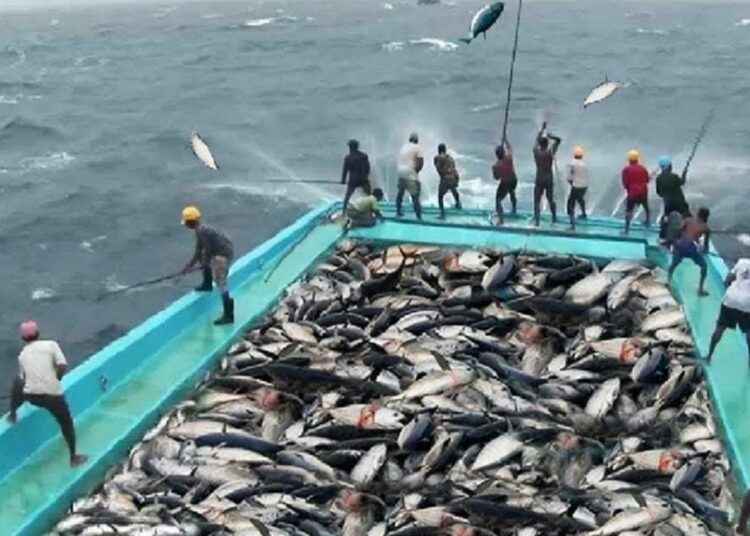Environmental experts have expressed concerns over an impending fish scarcity in the Niger Delta, owing to environmental pollution caused by oil spills and gas flaring, sea piracy and insecurity.
According to them many fishermen have been forced to give up their livelihoods due to gas flaring and constant oil spills that have devastated aquatic life and water bodies.
Nigeria ranks in the top 10 gas flaring countries in the world, with 7.4 billion cubic feet in 2018; the total gas flared in Nigeria accounted for 6.9 percent of the top 10 gas glaring countries in 2018, PwC report revealed.
On the other hand, in 2020 and 2021, Nigeria’s National Oil Spill Detection and Response Agency (NOSDRA) recorded 822 combined oil spills, totalling 28,003 barrels of oil spewed into the environment.
The founder and president, AIbom Oil Producing Community Development Network (AKIPCON) Phenson Ufot told me that these activities could lead to fish scarcity in the Niger Delta.
“Gas flaring and incessant oil spills have forced many fisherfolks to abandon the fishing occupation, as the water bodies and aquatic life have been disrupted by oil and gas leaks,” Ufot added.
Ufot warned that the unchecked pollution including the most recent in Ibeno Local government area of the state, would worsen the food crisis that locals are already facing and force many into crime.
He faulted the government for not doing enough to ensure the protection of the environment and the livelihoods of the common people, as oil producing communities in Akwa Ibom and the Niger Delta have been subjected to high levels of poverty, without the required infrastructural development.
The executive director of Environmental Defenders Network (EDEN), Barrister Chima Williams stressed that the insecurity in the Niger Delta is fueled by the pollutions and neglect of the host communities and their frustrations as producers of the golden egg but have nothing to show for it.
The EDEN executive director opined that the solution to the environment crisis in Akwa Ibom, like much of the Niger Delta must start with a comprehensive environmental audit to determine the amount of destruction of the ecosystem to be able to come up with holistic solutions.
He applauded the launch of the book, titled “State Security Management, Hydrocarbon Pollution, Environment and Implications on Human Rights in Nigeria”, while disclosing that EDEN will work with AKIPCON to continue to document oil impacts and challenge the relevant state institutions to take action to remediate the environment and hold its destructors to account.





